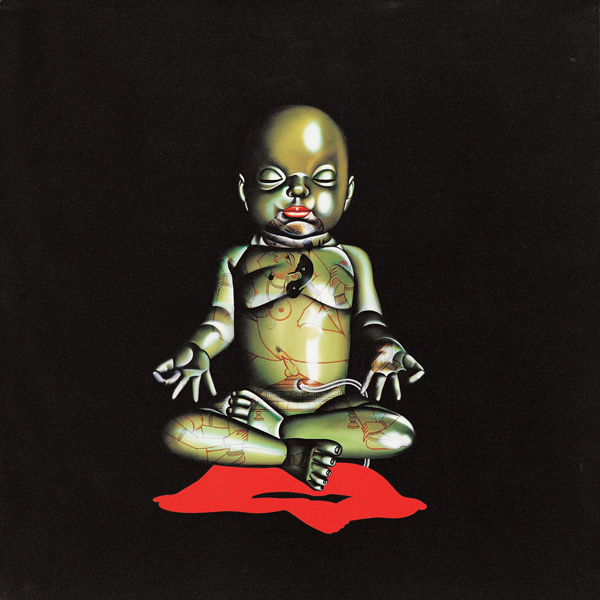Chintan Upadhyay, as a contemporary Indian artist, is concerned with the modern questions of consumerism, mass production, and originality, and their effects on contemporary society. Born in rural Rajasthan, he grew up immersed in traditional Indian art, particularly the traditional decorative motifs on the walls of every house in rural India, and the traditional miniature portraits of his home province, which are often highly sexualized. As a great admirer of Andy Warhol, he challenges the ideas of originality in a modern consumerist world both in terms of creation and production. Most of his works are computer generated before being painted, and he appropriates the traditional art of India, often inscribing provocative images on his figures.
"Bohgi to Yoghi"
The painting contains Upadhyay's iconic "Smart Alec Baby", a computer generated soft, innocent image usually juxtaposed with an arrogant pose or expression thus evoking disparate reactions in the viewer. In this painting the whole image is soft as the figure meditates in a traditional yoga posture. The Yoghi is, however, inscribed with very explicit sexual drawings taken from traditional Indian art. The "Boghi" of the title, is a young, hedonistic person, only concerned with immediate pleasure and self-gratification. A "Boghi" and a "Yogi" are as far apart as two people can be. Perhaps Upadahyay is suggesting that spiritualism can save us from the meaninglessness of consumerism especially in the area of human relationships where self-gratification is ultimately destructive. This is a very important work in Upadhyay's oeuvre, as the calm and peaceful "baby" seems to have found a way to control its innermost longings and desires.
